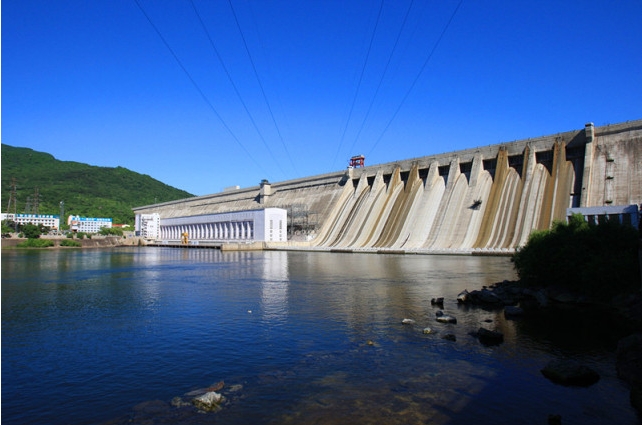
President Biden’s Investing in America Agenda Funds the Largest Single Investment in the Nation’s Waterpower Production, 46 Projects Across 19 States Funded to Increase Access to Affordable, Clean Electricity
WASHINGTON, D.C. — In support of the President Biden’s Investing in America agenda, the U.S. Department of Energy (DOE) yesterday announced the selection of 46 hydroelectric projects across 19 states to receive up to $71.5 million in incentive payments to increase the generation efficiency of the Nation’s existing hydropower fleet. Administered by the Grid Deployment Office and funded by the Bipartisan Infrastructure Law, the Hydroelectric Efficiency Improvement Incentive payments represent DOE’s largest investment in hydroelectric facilities to date.
“Hydropower is the nation’s prototype of renewable power playing an important role in deploying affordable and reliable electricity across the country,” said U.S. Secretary of Energy Jennifer M. Granholm. “Thanks to the President’s Investing in America agenda we are maintaining and expanding our hydropower fleets, helping reduce costs of operation and ensuring American workers continue to drive the nation’s clean energy transition.”
Hydropower is an essential component in helping achieve the Biden-Harris Administration’s ambitious clean energy goals. Today’s incentive program received robust industry interest, with applications requesting a total of $192 million in federal support. Using all available funding directed to the incentive, the selected improvements are anticipated to generate $468 million in combined federal and private investment. With an average selectee facility age of 75 years, these upgrades will contribute to the continued operation and longevity of hydroelectric assets.
Hydropower currently accounts for 27% of renewable electricity generation in the United States, as well as 93% of all utility-scale energy storage capacity. In addition to renewable electric generation, the U.S. hydroelectric fleet and their associated reservoirs play an important role with respect to water supply, flood control, and recreation. More efficient use of water for electric generation can only enhance the fleets’ ability to more effectively manage the nation’s waters.
Investments under the Hydroelectric Efficiency Improvement Incentives will support the continued operation of the U.S. hydropower fleet and ensure a more reliable and resilient electric grid system. The owners or operators of hydroelectric facilities, including pumped storage hydropower, receiving the efficiency incentives announced yesterday will make capital improvements that improve their facility’s efficiency by an average of 14% with a statutory minimum of 3% improvement per facility. Investments include upgrades to facility turbines and generators, as well as improvements to water conveyance structures, to increase efficiency.
The 46 selected projects can be found in California, Colorado, Connecticut, Georgia, Idaho, Maine, Massachusetts, New Hampshire, New York, North Carolina, Oklahoma, Oregon, Pennsylvania, Rhode Island, Tennessee, Vermont, Virginia, Washington, and West Virginia. A full list of selected entities is available here.
A public webinar will be held at 1:00 p.m. ET on February 7, 2024, to provide an overview of the Hydroelectric Efficiency Improvement Incentives selections and key trends identified. Registration is required and a recording of the webinar will be made available at a later date. Register here.
The Hydroelectric Efficiency Improvement Incentives are one of three incentive offerings funded by the Bipartisan Infrastructure Law to maintain and enhance existing hydroelectric facilities and ensure generators continue to provide clean, renewable electricity, while improving dam safety and reducing environmental impacts. Other program offerings include Hydroelectric Production Incentives provided to qualified hydroelectric facilities for electricity generated and sold and Maintaining and Enhancing Hydroelectricity Incentives provided to existing hydroelectric facilities for capital improvements directly related to grid resiliency, dam safety, and environmental improvements.